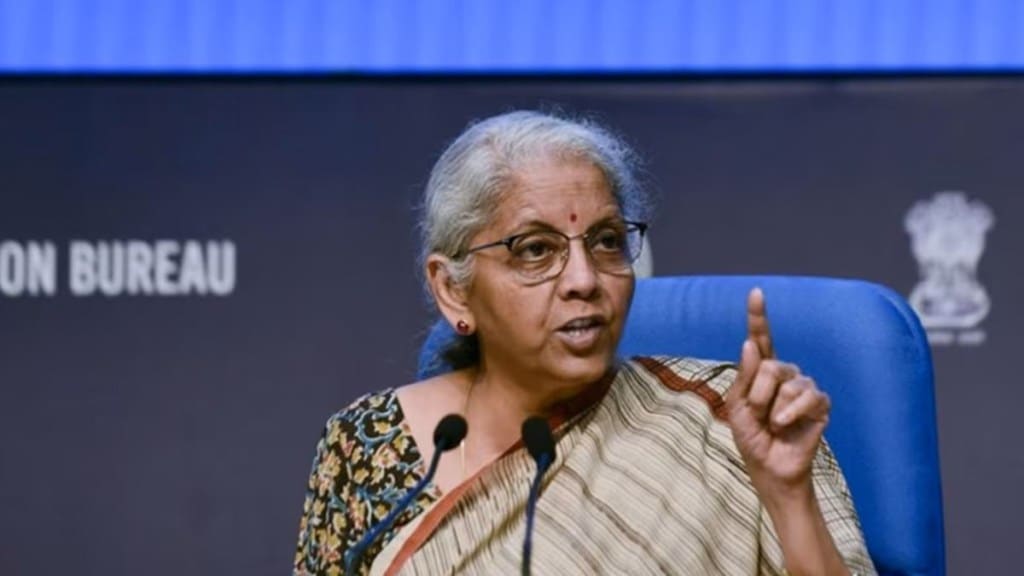In a post-budget interview, Union Finance Minister Nirmala Sitharaman responded to the recent imposition of tariffs by the United States on imports from Canada, Mexico, and China. The tariffs include a 25% additional levy on imports from Canada and Mexico, and a 10% tariff on shipments from China. While Canada’s energy resources will face a reduced tariff of 10%, the broader impact on global trade remains uncertain.
India’s Watchful Approach
When the Hindustan Times questioned the potential effects of these tariffs on India, Sitharaman acknowledged that while the country would be monitoring the situation closely, it was too early to predict the direct consequences. “We don’t know what it is going to be for us. But you raised a pertinent point. On Mexico, on Canada, on China, whatever is being imposed, will that have a bearing on us. It may indirectly have a bearing on us, but specifically on us, we don’t know yet what is going to happen. We’ll be watchful, but we can’t predict at the moment what the effect on us will be,” she said. While there could be indirect effects from the tariffs imposed on other countries, particularly in global trade dynamics, the finance minister emphasised that India would remain vigilant and adapt accordingly.
Strengthening Self-Reliance and Expanding Trade Horizons
Sitharaman pointed out that India’s focus on “atmanirbharta” (self-reliance) would help mitigate the impact of any unforeseen challenges from the US tariffs. The country aims to enhance its domestic production capabilities, particularly for essential commodities, ensuring that industries are well-equipped to manage potential disruptions in global supply chains. In addition, she highlighted the government’s ongoing efforts to support the export sector by encouraging industries to explore new markets and strengthening trade institutions like the Export Credit Guarantee Corporation (ECGC) and Exim Bank.
To address the potential fallout from global trade uncertainties, the Finance Minister emphasized that finding new markets and expanding India’s export base remain critical components of the country’s economic strategy. The government is actively working on measures to support this objective, with a particular focus on enhancing the financial capacity of institutions like ECGC and Exim Bank to facilitate more trade.
India’s Global Trade Strategy Amidst US Tariffs
Sitharaman’s cautious yet proactive stance reflects India’s broader trade strategy of diversifying its global trading relationships. While the country cannot yet fully assess the direct impact of the US tariffs, it is strengthening its institutional frameworks and promoting self-reliance in key sectors. These measures aim to ensure that India remains resilient, even as global trade dynamics shift in response to changing policies from major economies like the US.
India’s response to the new US tariffs underlines the importance of being adaptable in a rapidly changing global trade environment. As the government works to strengthen its domestic capabilities and expand trade opportunities, it remains committed to ensuring that industries are prepared for any challenges that may arise, all while closely monitoring developments in the US and other global markets.
